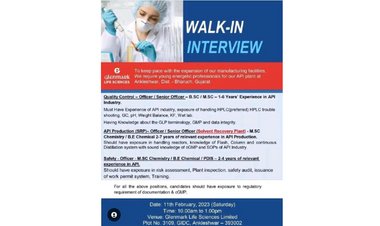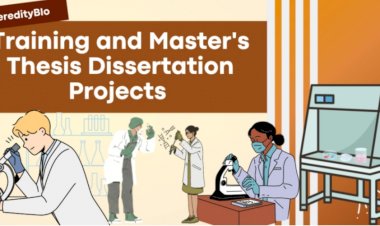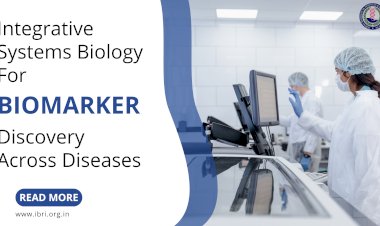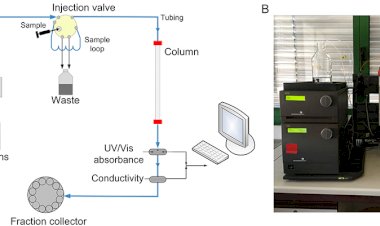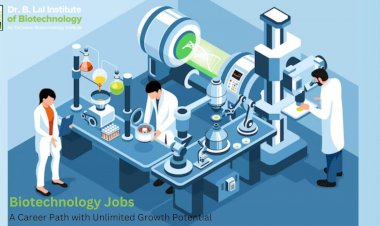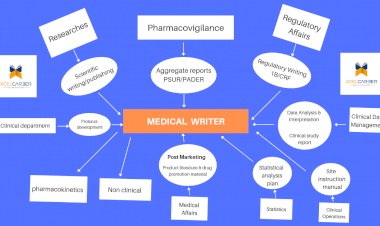Medical Devices Regulatory Affairs: The Science of Compliance and Patient Safety
Medical Devices Regulatory Affairs (MDRA) is a specialized domain focused on ensuring that medical devices meet stringent safety, efficacy, and quality standards before and after entering the market. It encompasses the interpretation and application of regulatory requirements throughout the device lifecycle, from design and development to clinical evaluation, approval, and post-market monitoring. Regulatory frameworks vary across regions—such as the US FDA, EU MDR, and India’s CDSCO—but all aim to protect patient health through structured classifications, rigorous documentation, clinical trials, and risk management practices. Professionals in this field prepare regulatory submissions, oversee compliance with standards like ISO 13485 and ISO 14971, and play a key role in labeling, marketing claims, and vigilance activities. As medical technologies rapidly evolve—including AI-driven diagnostics, implantables, and wearable devices—the importance of regulatory affairs continues to grow. The field offers scientifically driven career paths that combine biomedical innovation with public health protection and legal compliance.

The global medical device industry is at the heart of modern healthcare, developing tools that diagnose, monitor, and treat diseases across every medical specialty. From wearable glucose monitors to life-saving cardiac implants, these innovations must be proven safe and effective before they can be marketed or used in clinical practice. This is where Medical Devices Regulatory Affairs (MDRA) plays a crucial role. It is a multidisciplinary science that combines biomedical engineering, pharmaceutical sciences, public health policy, and legal expertise to ensure that medical devices meet rigorous national and international regulatory standards.
What is Regulatory Affairs in Medical Devices?
Regulatory Affairs in the context of medical devices is the function responsible for interpreting and applying regulatory requirements during the development, approval, marketing, and post-market monitoring of devices. It ensures that the device design meets Good Manufacturing Practices (GMP) and complies with regulations like the FDA’s 21 CFR Part 820, EU MDR 2017/745, or India’s Medical Device Rules, 2017. Regulatory professionals prepare detailed technical files (TFs) or design dossiers (DDs) that include device descriptions, intended use, design verification/validation data, clinical evaluation reports, risk management files (per ISO 14971), and labeling specifications.
These documents are critical in securing a CE mark (EU), 510(k) clearance or PMA approval (USA), or a Device Import License/Form MD-14/15 (India). Regulatory affairs thus serves as a critical interface between manufacturers and regulatory bodies, balancing innovation with compliance.
Why is Regulatory Oversight Necessary?
The consequences of device failure can be catastrophic. For example, metal-on-metal hip implants and defibrillator lead malfunctions have led to mass recalls and patient harm. Regulatory oversight minimizes such risks by enforcing Quality Systems Regulations (QSR), biocompatibility testing (ISO 10993 series), and clinical evaluation standards (MEDDEV 2.7.1 Rev 4 in EU).
The scientific rationale behind these rules lies in ensuring biological safety, mechanical integrity, electrical performance, and software reliability (especially for Software as a Medical Device, or SaMD). These controls ensure that a device performs as intended, under both expected and extreme conditions, and does not introduce unacceptable risks to patients or users.
Global Regulatory Frameworks and Harmonization Efforts
The global nature of medical device commerce demands cross-border harmonization. Although each country has its own regulatory authority, harmonization efforts such as the International Medical Device Regulators Forum (IMDRF) and the Global Harmonization Task Force (GHTF) aim to streamline regulatory processes and reduce duplication.
- United States (FDA): Devices are classified into Class I (general controls), Class II (special controls), and Class III (requires Premarket Approval). Scientific substantiation is submitted in the form of 510(k) notifications, De Novo requests, or PMA dossiers, depending on device risk.
- European Union (EU MDR): The new MDR (2017/745) replaces the MDD and introduces stricter requirements for clinical evaluation, Unique Device Identification (UDI), and post-market clinical follow-up (PMCF). High-risk devices (Class III) require Notified Body review and periodic safety updates.
- India (CDSCO): Under the Medical Device Rules, 2017, India classifies devices from Class A (low risk) to Class D (high risk). Importers and manufacturers must obtain licenses via an online portal (Sugam), and compliance with ISO 13485:2016 is mandatory for all classes.
- Japan (PMDA) and other countries like Australia (TGA), Canada (Health Canada), and Brazil (ANVISA) have similarly robust systems. Many of them require clinical evidence, labeling in local languages, and compliance with local pharmacovigilance/technovigilance systems.
Scientific Foundations of Device Classification
Medical devices are scientifically classified based on:
- Invasiveness (e.g., non-invasive imaging vs. implantable defibrillator)
- Duration of Contact (transient, short-term, long-term)
- Anatomical Site of Action (e.g., skin vs. central circulatory system)
- Material Composition (e.g., stainless steel, polymers, biological tissues)
- Presence of Active Components (electronic or software-driven devices)
These factors determine the device’s risk profile, which in turn dictates the level of regulatory scrutiny. For example, a Class III cardiac stent would require in vivo biocompatibility studies, mechanical fatigue testing, angiographic imaging trials, and clinical trials (IDE, pivotal studies) prior to market entry.
Essential Responsibilities in Medical Device Regulatory Affairs
Regulatory affairs professionals must synthesize and manage a wide array of scientific and compliance-related tasks, including:
- Regulatory Strategy Development: Define the optimal global regulatory path, considering market priorities and device classification.
- Compilation of Technical Documentation: Assemble documents including risk management reports, sterilization validations, clinical evaluations, software verification protocols, and IFUs (Instructions for Use).
- Clinical Trials Oversight: Support the design and monitoring of investigational device studies, adhering to Good Clinical Practice (GCP).
- Labeling and Claims Validation: Ensure all marketing materials and labels are truthful and evidence-based.
- Post-Market Vigilance: Monitor and report adverse events, conduct field safety corrective actions (FSCA), and support device recalls when necessary.
Advancing Your Career in Regulatory Affairs
The demand for skilled RA professionals is rapidly increasing as new medical technologies emerge, including digital health tools, wearable sensors, and AI-based diagnostics. Companies seek individuals with both scientific literacy and regulatory insight. A background in biomedical engineering, life sciences, pharmacy, or clinical research is highly desirable. Additionally, familiarity with GAMP 5, EU UDI-DI requirements, ISO 14155, and clinical trial regulations is increasingly important.
Institutes like IBRI Noida are instrumental in preparing professionals through dry lab programs and certification courses in Regulatory Affairs. These courses simulate real-world regulatory scenarios, including dossier preparation, mock audits, clinical data analysis, and software-based document management (e.g., eCTD, RIMS).
Conclusion
Medical Devices Regulatory Affairs is far more than an administrative role—it is a science-driven, multidisciplinary field that plays a critical part in public health. From ensuring safe surgical instruments to regulating cutting-edge neurostimulation devices, RA professionals are guardians of both innovation and safety. With global demand for devices on the rise, there is a significant opportunity for scientifically trained individuals to make a real impact in this domain. Whether you're entering the field or seeking to advance your expertise, a career in regulatory affairs offers intellectual challenge, global relevance, and societal value.
Launch your Regulatory Affairs Career with IBRI Noida!
Join our comprehensive training programs in Medical Devices Regulatory Affairs and gain the skills you need to thrive in the medtech industry.
Apply now: https://ibri.org.in/admission-form.html
info@ibri.org.in | ???? +91 9999509892
www.ibri.org.in
#RegulatoryAffairs #MedicalDevices #GMP #ISO13485 #FDA #EUMDR #CDSCO #ClinicalTrials #DeviceSafety #IBRINoida #MedicalTechnology #ComplianceScience #MedTechCareers #RAProfessionals












